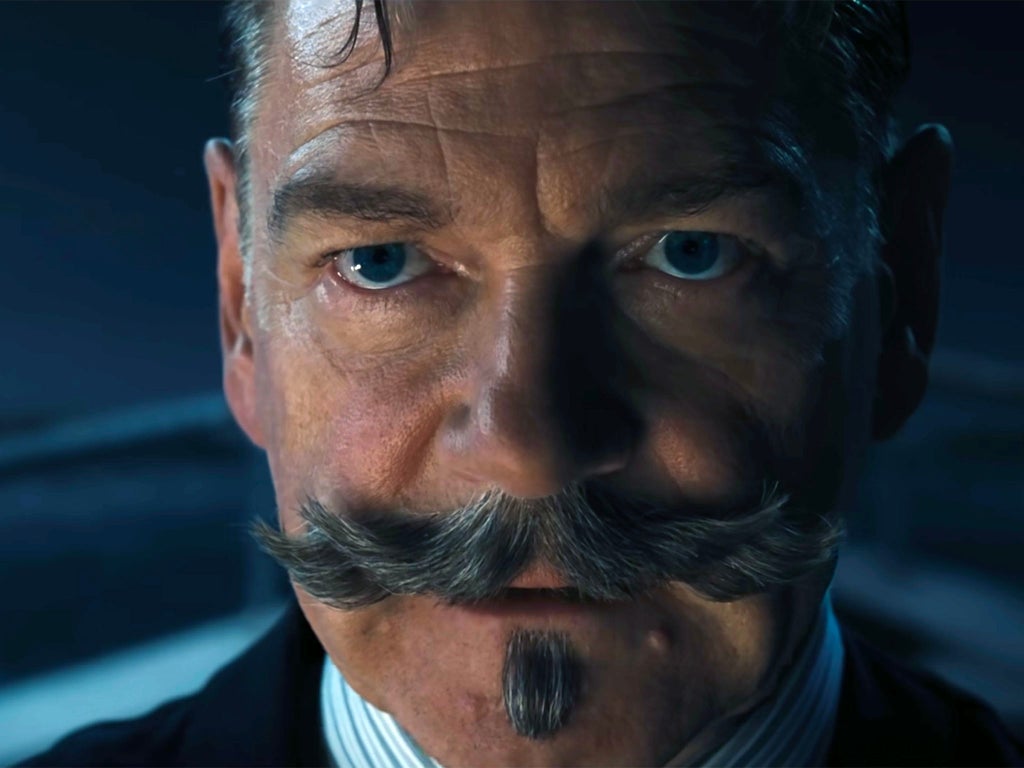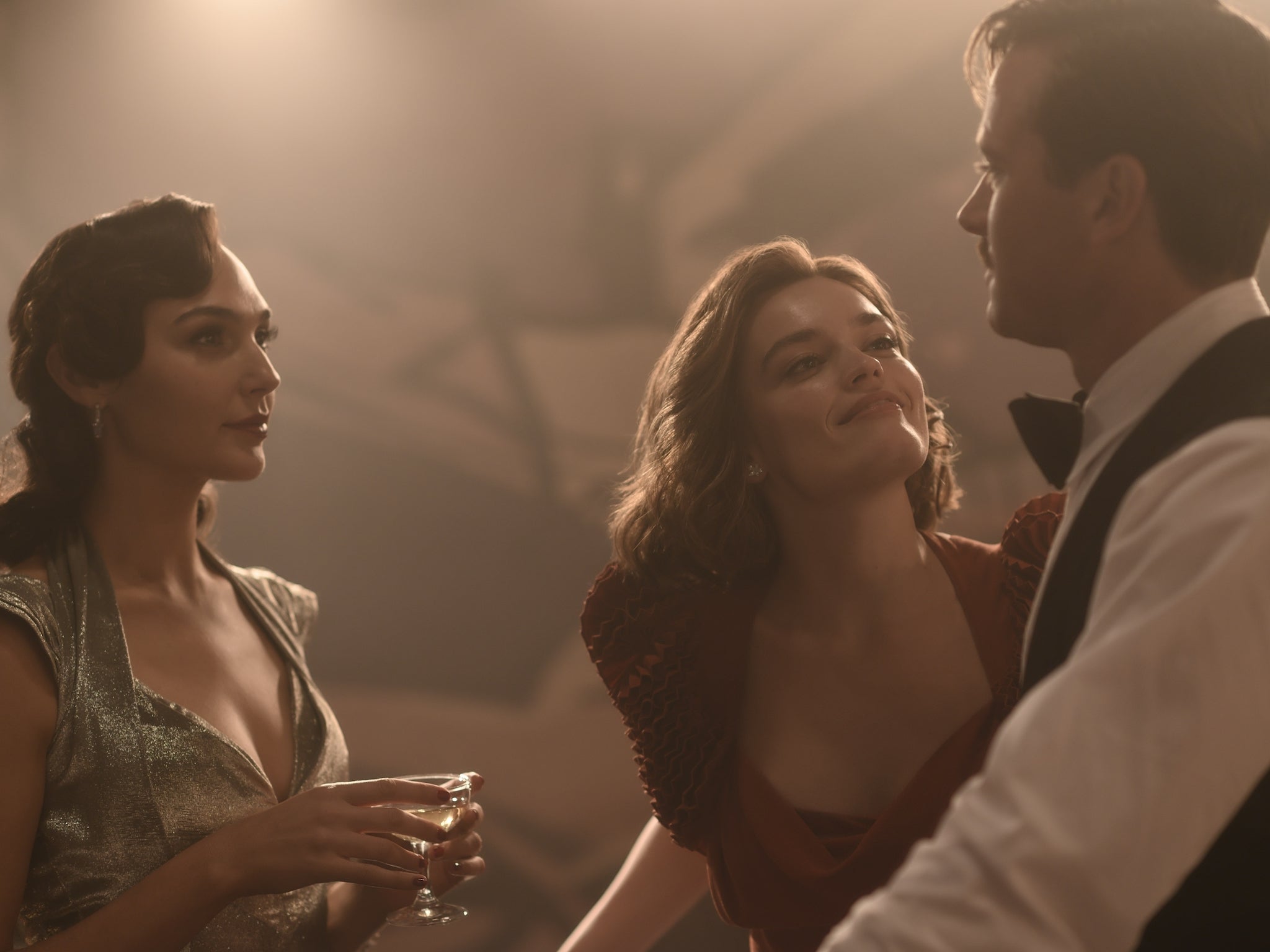
Dir: Kenneth Branagh. Starring: Kenneth Branagh, Gal Gadot, Tom Bateman, Annette Bening, Letitia Wright, Emma Mackey, Sophie Okonedo. 12A, 127 minutes
The kindest thing we could with Death on the Nile, after all that’s happened to it, would be to move on and forget. Fox originally slated the film for November 2019 (does that not feel like a century ago?) – then December 2019, intended as a bit of adult-orientated counterprogramming to Star Wars: The Rise of Skywalker. Then Fox was bought by Disney, the company that made The Rise of Skywalker, and it found itself pushed back to 2020. Then, of course, came the pandemic. And while the studios were busy juggling release dates like they were flaming cannonballs, multiple allegations surfaced about one of the film’s stars, Armie Hammer. These included rape, emotional abuse, manipulation, and coercion. The actor denies the accusations.
Any move to reshoot the film with a new actor, or to digitally replace Hammer, was deemed impractical. And Disney clearly wasn’t prepared to take the financial (and, potentially, contractual) hit by having the film released straight to its streaming service. Audiences, then, are left with the question: what here is worth salvaging? Who really has the will to fight for Death on the Nile, or to drag it out from the ashes of its own catastrophic production history? The answer is fairly muted.
In its defence, the film is perfectly adequate. Branagh’s adaptation of Agatha Christie’s 1937 murder mystery is texturally conventional, even if he’s made his own adjustments to the cast of suspects. Much like 2017’s Murder on the Orient Express before it, it’s a Christie adaptation for the age of slowed-down pop jams played over film trailers: sheenful and ultimately hollow.
The reduced list of passengers who board the Egyptian steamer Karnak, set to tour the Nile, are here ostensibly to celebrate the recent marriage of Linnet Ridgeway (Gal Gadot) and Simon Doyle (Hammer) – the former best friend and ex-fiancé of the now-vindictive Jacqueline de Bellefort (Emma Mackey). Among them are Tom Bateman’s Bouc, Poirot’s ally from the Orient Express, and his socialite mother Euphemia (Annette Bening). Sophie Okonedo and Letitia Wright play an aunt-and-niece duo, one a jazz singer and the other her level-headed manager. The murder victim is set up to be as much as a surprise as the murderer.
Christie adaptations have always functioned as an excuse to draw on the collective power of a large and starry cast. But there’s an inconsistency between, let’s say, the breeziness of Bening’s potshots at the other passengers and Rose Leslie’s struggles to spit out the heavily accented words of her French maid, Louise Bourget.
Branagh, meanwhile, working off a script by Michael Green, has a rather regrettable tendency to lean into the colonialist fantasy of Christie’s original story. He depicts Egypt both as a place of foreboding – where wives are buried alive, and screaming, alongside dead kings – and of pastoral simplicity. The locals will wave heartily as a boat of rich, mostly white, tourists goes by. This Egypt – much of it recreated on a soundstage in Surrey, England – has the glossy, vacant look of one of those car park battlegrounds superheroes tend to find themselves in.
But Death on the Nile isn’t entirely lacking in self-awareness. When Linnet declares that she’ll “buy the whole damn country”, there’s a feeling of cosmic retribution in the air. It’s not quite class commentary, but there’s an idea that wealth brings with it its own curses: a lack of friends, a lack of allies. Perhaps a knife in the back. This is where the film’s great detective, Hercule Poirot (Branagh), steps in. He declares himself as the “working man”, which in this story seems to imply that he can also serve as the ultimate hand of justice.

Clearly, Branagh sees Christie’s novels as more than a series of clever whodunits, but as rich morality plays. And Death on the Nile is her treatise on love and lust. There’s a sexed-up approach to the wedded couple’s affair, though the foreplay seems to largely involve Linnet reciting lines from Antony and Cleopatra (is this Gadot sneaking in her audition to play the Egyptian queen?).
Mostly, however, love is the root cause of despair. It haunts even Poirot, though the backstory to his broken heart is far more convincing than the (entirely unnecessary) one explaining his moustache. There’s a romantic streak to Branagh that is endearing both in the way he plays the Belgian detective – over-egged pronunciation of “veggie-tables” aside – and in how he frames the character within the film. Perhaps that’s what we should take from Death on the Nile – that this, coupled with his autobiographical Belfast, reminds us of the purity with which he renders emotion on screen.







